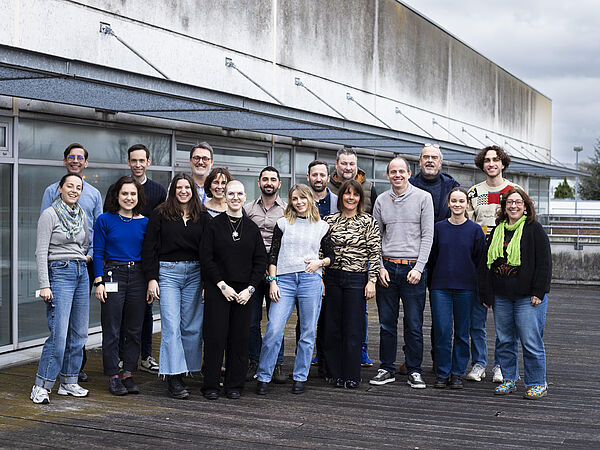Psychiatry Subjectivity Inference
The Lille PSI (Psychiatry, Subjectivity & Inference) team's research program aims to gain a better understanding of the elementary mechanisms behind our subjective and intersubjective experiences, whether these occur in physiological conditions or in pathological contexts, particularly in psychiatric disorders, neurodevelopmental disorders and rare diseases.

Our work is characterized by:
1. A computational psychiatry approach linking belief generation to more elementary mechanisms of synaptic and neuronal dynamics, such as the control of the excitation-inhibition (E/I) ratio at the microcircuit level. The exploration of this E/I balance has led to the emergence of new collaborations which allowed to extend our current field of application (psychophysics, cognition, EEG, fMRI in clinical and non-clinical populations) to invasive cognition/electrophysiology models in rodents ;
2. An expertise in psychiatric imaging which allowed us to validate a new fMRI-targeted biomarker capable of guiding neuromodulation therapies. We are also developing methods for real-time fMRI decoding of pathological brain states paving the way for closed-loop neurofeedback therapies. This imaging expertise extends to signal processing in human electrophysiology, with EEG hyperscanning projects ;
3. A unique positioning at the interface of precision psychiatry and neurotechnologies. Our Autumn School on closed-loop systems in neuroscience, has enabled us to weave a solid network of collaborations on the Lille site (IEMN, CRIStAL, SCALab, IRCICA, F2RSMPsy) and to carry an emerging transdisciplinary program, aligned with : (i) the strategic objectives of the university of Lille's new Institute of Brain, Society & Technology, as well as with (ii) the strategy of the European neurotechEU alliance, both in terms of teaching (ERASMUS+) and research (mobility, collaborations).


